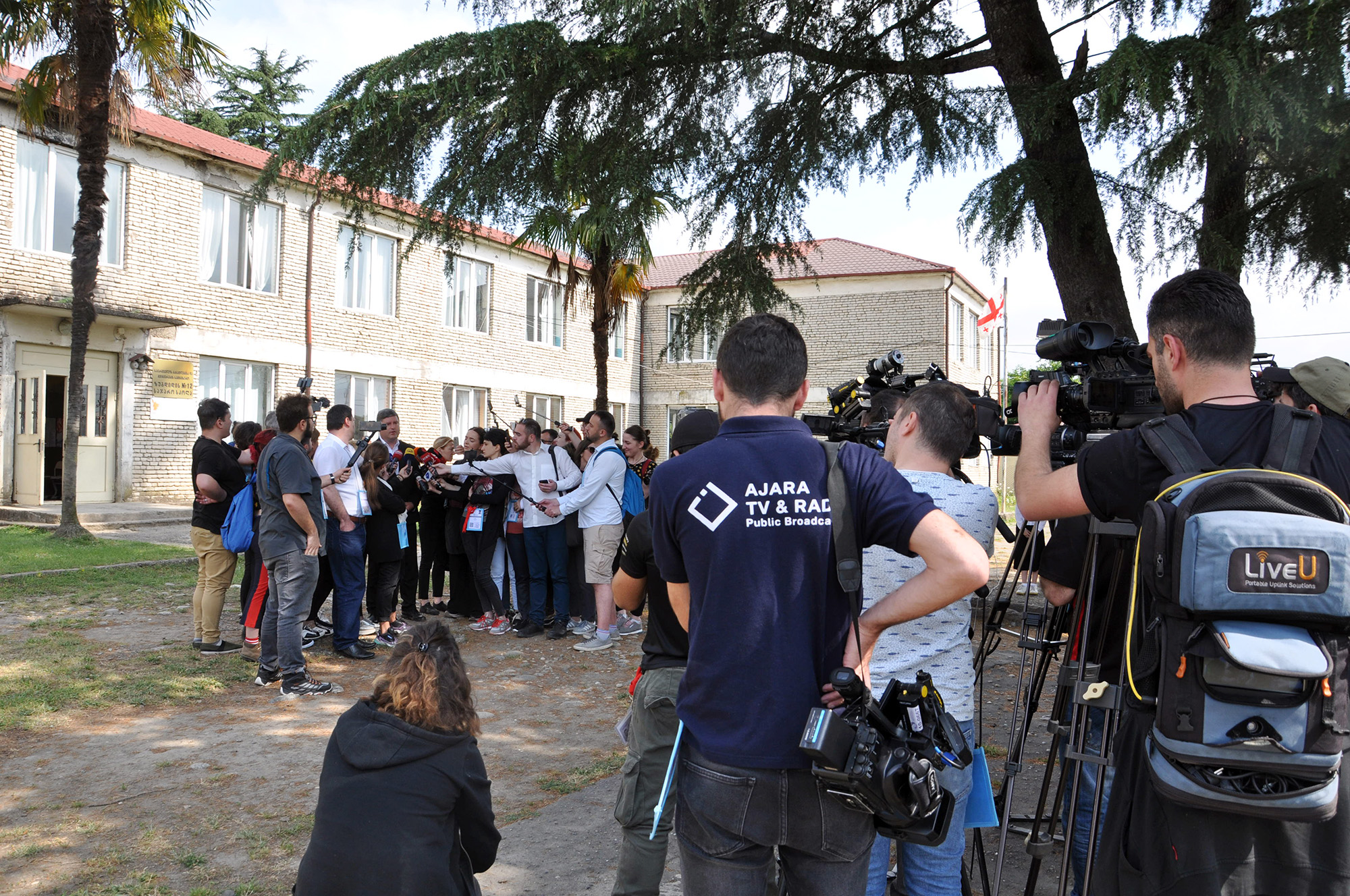
Georgia’s parliament is to discuss a new bill regulating hate speech on television. The controversial draft law, deemed ‘dangerous for freedom of speech’ by media advocacy groups, would allow televised ‘hate speech’ to be appealed through the courts or to Georgia's Communication Commission.
The bill was submitted to parliament by the Georgian National Communication Commission (GNCC) in December 2018. However, on 13 June, Parliamentary Chair Irakli Kobakhidze said they would accelerate discussion of the bill.
‘Hate speech is part of freedom of expression, but our aim is to find the perfect balance between people’s desire to use hate speech and freedom of expression’, he said.
He added that free speech requires special attention and if needed ‘freedom of expression can be limited’. ‘It’s important that limitation of freedom of expression be within legitimate borders’, said Kobakhidze.
The current legislation states that broadcasting ‘programmes containing an apparent and direct threat of inciting racial, ethnic, religious or other hatred in any form and the threat of encouraging discrimination or violence toward any group, is prohibited’.
The Law on Broadcasting also states that measures against violations can be taken only within broadcasters’ own self-regulation mechanisms.
According to the draft law, if applicants do not agree with the decision of broadcasters’ self-regulation bodies, they would be able to appeal these decisions to the courts or the GNCC.
‘The possibility of appealing the decisions of self-regulation bodies to the GNCC or courts will dramatically increase the effectiveness of self-regulation and broadcasters will treat appeals with a greater responsibility’, the explanatory note of the bill says.
The GNCC has claimed the initiative stems from European Commission Directive 2010/13/EU on Audiovisual Media Services.
The directive says that ‘co-regulation should allow for the possibility of State intervention in the event of its objectives not being met’.
However, it also says that ‘this should neither oblige Member States to set up co-regulation and/or self-regulatory regimes nor disrupt or jeopardise current co-regulation or self-regulatory initiatives which are already in place within Member States and which are working effectively’.
‘Leverage to influence the media’
On 14 June, the Coalition for Media Advocacy, a group of organisations advocating for free speech, denounced the bill as ‘highly dangerous and oriented on limiting free speech’. In a statement, the group said that with all due respect to GNCC’s attempt to reduce hate speech on air, the way they had decided to tackle the issue was ‘wrong’.
They also noted that the European Commission directive allowed states to decide for themselves whether the issue should be managed through regulation or self-regulation.
They said that if adopted, the GNCC would be able to intervene in media content and therefore ‘the state will be given leverage to influence the media’. They proposed that self-regulation mechanisms should be strengthened instead, and that this would fulfil the European Commission directive.
‘We believe that any amendment in the legislation worsening the current standard of free speech will endanger the democratic development of the state’, said the coalition.
They added that the bill would reenact the same provision that the government used to take Imedi TV off-air in 2007.
The government of then-President Mikheil Saakashvili raided, seized, and shut down Imedi during the 2007 state of emergency, during mass anti-government protests.
An anti-defamation law
Another legal initiative deemed by some NGOs as risky to free speech, an anti-defamation law, was put forward in January.
Officials began discussing the proposal after the leader of the Orthodox Church spoke out against the ‘malicious use of free speech’.
The first official to propose the law was President Salome Zurabishvili, who announced at a press conference on 11 January that she was coming up with a ‘moral initiative’ to tackle ‘an issue which has triggered a lot of turbulence in the Georgian society’.
After meeting backlash from the rights groups, the president quietly dropped initiative.
[Read more about the slander bill on OC Media: Proposed Georgian defamation law ‘puts freedom of speech at risk’]




 14 June 2019
14 June 2019


